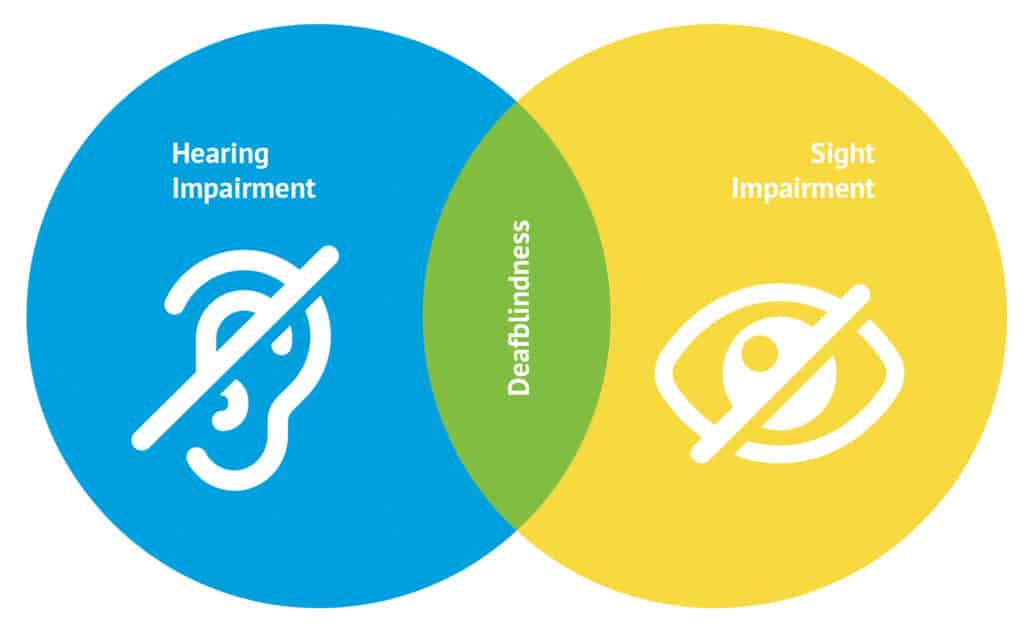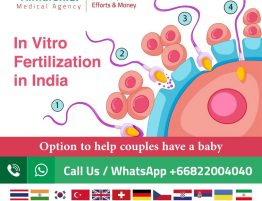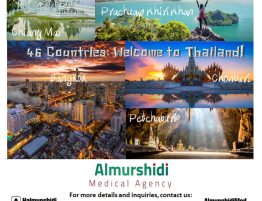
Deafblindness is a combination of sight and hearing loss that affects a person’s ability to communicate, access information and get around. It is also known as “ dual sensory loss” or “multi-sensory impairment”.
A deafblind person won’t usually be totally deaf and totally blind, but both senses will be reduced enough to cause significant difficulties in everyday life.
These problems can occur even if hearing loss and vision loss are mild, as the senses work together and one would usually help compensate for loss of the other.
Signs of Deafblindness
Deafblindness most commonly affects older adults, although it can affect people of all ages, including babies and young children.
In older people it may develop gradually and the person themselves may not realise their vision and/or hearing is getting worse at first.
Signs of a problem can include;
- Needing to turn up the volume on the television or radio
- Difficulty following a conversation
- Not hearing noises such as a knock at the door
- Asking others to speak loudly, slowly and more clearly
- Needing to hold books or newspapers very close, or sitting close to the television
- Difficulty moving around unfamiliar places
If someone already has either a hearing or vision problem, it’s important to look out for signs that suggest other senses may be getting worse too.
Cause
There are many potential causes of deafblindness. Some babies are born deafblind, but in many cases the hearing and/or vision loss occurs later in life.
Causes of deafblindness include;
- Age-related hearing loss
- Genetic conditions, such as Usher syndrome
- An infection picked up during pregnancy, such as rubella (German measles)
- Cerebral palsy – a problem with the brain and nervous system that mainly affects movement and coordination
- Eye problems associated with increasing age, such as cataracts
Treatment
It’s not always possible to treat the underlying causes of deafblindness, but a range of care and support services are available to help people with the condition.
Individual Care Plan – the individual abilities and needs of a deafblind person should be assessed soon after they’re diagnosed. This will allow a tailored care plan to be drawn up.
The care plan will aim to;
- Preserve and maximise any remaining sensory functions the person has
- Teach alternative communication methods such as the deafblind manual alphabet
- Help the person retain as much independence as possible
- For young children, ensure their education needs are met.
What We Offer
We at Almurshidi Medical Tourism will find the best doctors to cater to your needs. We are partnered with a wide network of hospitals and clinics that provide top quality medical experience.
We provide free medical estimates, make medical appointments, and provide several medical opinions if needed at no cost.
Contact Us
For more information contact us at +66822004040 or via WhatsApp





